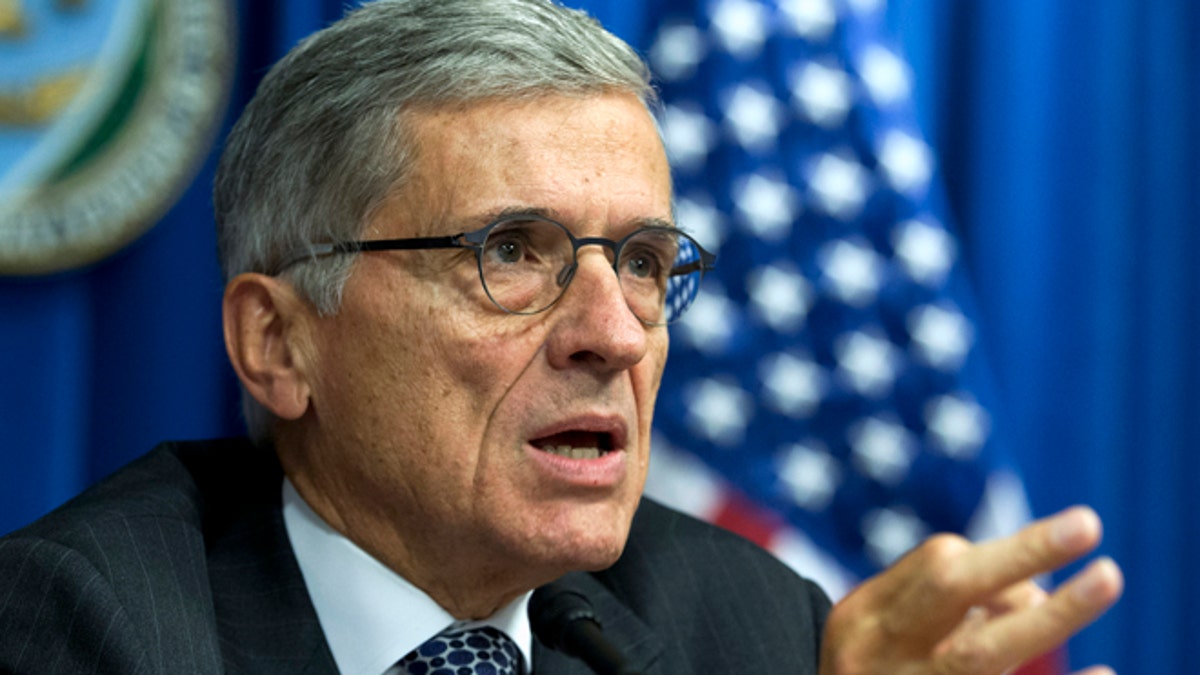
Oct. 8, 2014: Federal Communications Commission (FCC) Chairman Tom Wheeler speaks during a news conference in Washington. (AP)
The chairman of the Federal Communications Commission is proposing unprecedented rules to regulate Internet service providers -- including mobile broadband -- like a public utility, in a far-reaching move that could be one of the most divisive plans to emerge from the agency in years.
In an op-ed in Wired magazine posted online, FCC Chairman Tom Wheeler said his plan would regulate Internet service much like phone service or any other public utility by applying Title II of the 1934 Communications Act.
In doing so, the agency would prohibit providers from slowing down, speeding up or blocking web content.
"I am submitting to my colleagues the strongest open internet protections ever proposed by the FCC," he wrote. "My proposal assures the rights of internet users to go where they want, when they want, and the rights of innovators to introduce new products without asking anyone's permission."
Net neutrality is the idea that Internet providers should not move some content faster than others or enter into paid agreements with companies such as Netflix to prioritize their data. Advocates for this approach say it would keep the Internet free and open -- making content equally available to everyone and treating the Internet as a pipeline that must not restrict access.
"Reclassifying the Internet as a utility -- equally accessible to all -- is hugely popular with voters of all political stripes, who don't want old corporations writing the rules," Progressive Change Campaign Committee co-founder Adam Green said in a statement praising Wheeler's plan.
But industry has fought against this approach, contending that it would only be a matter of time before the rules grow more stringent and discourage investment. Congressional Republicans also have voiced concerns about the FCC's approach.
House Judiciary Committee Chairman Bob Goodlatte, R-Va., accused Wheeler on Wednesday of going too far.
"Wheeler overestimates the FCC's authority to re-write our nation's communications laws -- a responsibility tasked to Congress, not the FCC -- and ignores the fact that his net neutrality rules almost certainly will be stuck in courts for years over questions of their legality," he said in a statement. "Americans don't need bulky regulations to be applied to the diverse and competitive Internet marketplace."
He claimed the proposal would "squelch investment in one of the most dynamic and competitive marketplaces in history."
Major cable companies that supply much of the nation's broadband have said it's likely they will sue in court, arguing that the FCC is overreaching in its authority.
The FCC will vote Feb. 26 on his proposal.
Wheeler's plan is an aggressive leap in Internet regulation in an industry that has so far seen very little government oversight.
In his op-ed, he made clear that his plan would ban "paid prioritization" -- as well as apply for the first time "those bright-line rules to mobile broadband."
Wheeler's plan aligns the former lobbyist with President Obama, who has called on the FCC to apply Title II.
The Associated Press contributed to this report.




